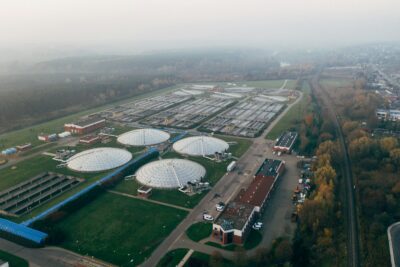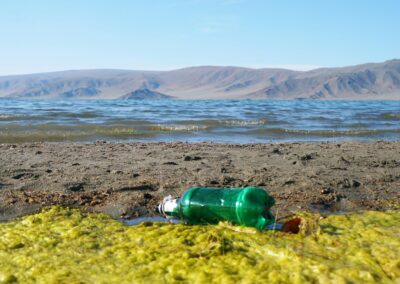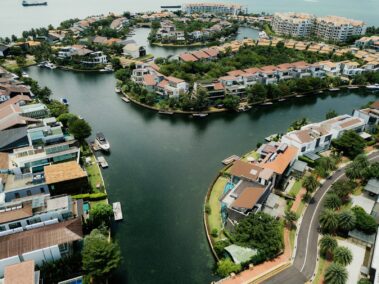Enhancing Water Quality through Modern Technology
The Role of Advanced Oxidation Processes in Water Treatment
The integration of advanced oxidation processes (AOPs), such as photocatalysis and ozonation, in water treatment systems is revolutionizing the way organic pollutants and pharmaceuticals are degraded, significantly enhancing water quality. In regions like Saudi Arabia and the UAE, where water scarcity and pollution are pressing concerns, adopting advanced water treatment technologies is critical for ensuring sustainable water management and public health.
Advanced oxidation processes involve the generation of highly reactive species, such as hydroxyl radicals, which can break down complex organic pollutants into simpler, non-toxic compounds. Photocatalysis, for example, uses light to activate a catalyst, typically titanium dioxide, which then produces reactive species that degrade pollutants. Ozonation, on the other hand, involves the use of ozone gas, which reacts with organic compounds to produce hydroxyl radicals that further decompose pollutants.
For business executives and project managers, understanding the benefits and applications of advanced oxidation processes is essential for implementing effective water treatment solutions. Incorporating these technologies into water management strategies not only improves water quality but also demonstrates leadership in adopting innovative and sustainable practices. By investing in AOPs, businesses can contribute to environmental protection and ensure the well-being of their communities.
Photocatalysis and Ozonation: Key Technologies in AOPs
Photocatalysis and ozonation are two of the most widely used advanced oxidation processes in water treatment. Photocatalysis involves using a semiconductor catalyst, typically titanium dioxide, activated by ultraviolet (UV) light. This activation leads to the production of electron-hole pairs, which generate reactive oxygen species capable of degrading a wide range of organic pollutants and pharmaceuticals. This process is highly efficient and can be applied to treat various types of water, including drinking water, wastewater, and industrial effluents.
Ozonation, another powerful AOP, involves the dissolution of ozone gas in water. Ozone is a strong oxidant that reacts with organic pollutants to form hydroxyl radicals, which are even more reactive and effective in breaking down complex contaminants. Ozonation is particularly effective in eliminating pharmaceuticals and endocrine-disrupting compounds that are resistant to conventional water treatment methods. In cities like Riyadh and Dubai, where water quality is a top priority, incorporating ozonation into water treatment systems ensures that even the most stubborn pollutants are effectively removed.
For businesses operating in sectors such as water treatment, environmental engineering, and pharmaceuticals, leveraging photocatalysis and ozonation can enhance their competitive edge and regulatory compliance. These technologies not only improve the efficiency of water treatment processes but also reduce operational costs by minimizing the need for chemical additives and energy consumption. By adopting advanced oxidation processes, companies can demonstrate their commitment to innovation and sustainability.
Implementing AOPs in Water Treatment Systems
The successful implementation of advanced oxidation processes in water treatment systems requires a comprehensive understanding of the technologies and their operational parameters. In Saudi Arabia and the UAE, where water resources are limited, optimizing the use of AOPs is crucial for achieving sustainable water management. This involves selecting the appropriate AOP based on the specific contaminants present in the water, as well as the desired treatment outcomes.
Integrating AOPs with existing water treatment infrastructures can enhance the overall effectiveness and efficiency of the treatment process. For example, combining photocatalysis with conventional filtration systems can provide a multi-barrier approach that ensures the removal of both particulate and dissolved pollutants. Similarly, using ozonation in conjunction with biological treatment methods can improve the biodegradability of contaminants, leading to more effective secondary treatment processes.
For business leaders and project managers, investing in advanced oxidation processes involves not only the initial capital expenditure but also ongoing operational and maintenance considerations. Ensuring that staff are trained in the operation and maintenance of AOP systems is essential for maximizing their performance and longevity. Additionally, monitoring and evaluating the effectiveness of these systems through regular water quality testing ensures that treatment goals are consistently met.
Conclusion: The Future of Water Treatment with AOPs
In conclusion, advanced oxidation processes such as photocatalysis and ozonation are transforming water treatment by providing effective solutions for degrading organic pollutants and pharmaceuticals. By leveraging these technologies, regions like Saudi Arabia and the UAE can enhance their water quality and ensure sustainable water management. For business executives and project managers, integrating AOPs into their water treatment strategies is crucial for achieving regulatory compliance, promoting sustainability, and protecting public health.
Promoting a culture of innovation and sustainability within organizations is key to addressing the challenges of water pollution and scarcity. By investing in advanced oxidation processes and other cutting-edge water treatment technologies, businesses can contribute to the overall well-being of their communities and the environment. As we continue to advance technologically, the importance of integrating these innovations into water treatment efforts cannot be overstated.
Ultimately, the goal is to create a safer and more sustainable future for all. By prioritizing the development and implementation of advanced oxidation processes, we can reduce the risks associated with water pollution and enhance the overall quality of our water resources. As leaders and innovators, it is our responsibility to harness the power of technology to drive positive change and ensure the health and sustainability of our communities.
—
#AdvancedOxidationProcesses #WaterTreatment #Photocatalysis #Ozonation #OrganicPollutants #WaterQuality #SaudiArabia #UAE #Riyadh #Dubai #ArtificialIntelligence #Blockchain #Metaverse #GenerativeAI #ModernTechnology #BusinessSuccess #Leadership #ManagementSkills #ProjectManagement























